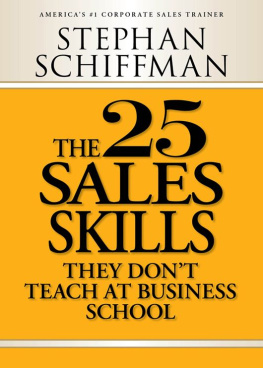I am indebted to the people who trusted me enough to talk to me for this project, some of whom have had more than their fill of journalists and all of whom have had more than their fill of suffering. Juliet Darling, Stuart Diver, Louisa Hope, Walter Mikac, Hannah Richell, James Scott and Michael Spence: I hope I have rewarded your trust by giving true and honest accounts of what you went through in a way that honours your own experiences and the lives of those who were loved and lost.
Thank you to the other people who were interviewed. I am particularly grateful to Her Honour Magistrate Mary Jerram AM, Jane Gladman, Wendy Liu, Father Steve Sinn, Noni Hazlehurst AM, the Honourable John Howard OM AC, Graham Norris, Dr Amanda Gearing and Lynn Houlahan.
For their additional assistance, I extend my gratitude to Angus Huntsdale at the NSW Department of Justice, Michael Wilson at the Australian Bureau of Statistics, Shona Whitton at the Australian Red Cross, Professor James Curran at the University of Sydney, Kirsty Thompson and Simon Bouda at the Nine Network Australia, Dr Denis Muller at the University of Melbourne, the Honourable Dr Andrew Leigh MP, His Honour Judge Roger Dive, Dr Jill Gordon, Johannes Leak and Adam Simpson.
Ben Ball was a dream editor: enthusiastic, encouraging and full of thoughtful suggestions that helped me enormously. Ben, I so appreciate your belief in me and your understanding of what I was hoping to do. Thank you also to copyeditor Meredith Rose for her excellent suggestions and tweaks. My gratitude to the rest of the team at Penguin Random House too.
This book could not have been written without my incredible researcher, Cathy Beale. Her attention to detail, ability to find relevant work, eye for an anecdote and unparalleled organisational skills saved me many hours. Thank you Cathy for agreeing to work for me on your only day off every week.
Deep thanks to my dear friend Pamela Williams for being my primary sounding board on the manuscript and for her remarkable friendship. There is no more generous and caring person that I know.
Other friends provided counsel and encouragement and I thank them with love: Julia Baird, Annabel Crabb, Callum Denness, Hugh Dillon, Mia Freedman, Benjamin Law, Lisa Millar, Caroline Overington, Sarina Rowell, Sally Sara and Cath Sullivan.
My friends, colleagues and family keep me going as always. Thank you to all of you but especially to Mum and Dad for so much support in recent years. Youve been the greatest parents anyone could hope for and I appreciate every day how much youve done for me.
Finally, I wish kind fates on my sons, Daniel and James, and on days of both triumph and tragedy, I hope that they remember Robert Frosts wisdom about life: it goes on.
INTRODUCTION: STARING AT THE SUN
Murdoch, I., The Sovereignty of Good , Routledge & Kegan Paul, 1970, London.
ONE: THAT COULD HAVE BEEN ME
Personal interview, L. Hope with the author, Sydney, January 2017. 2000
The account of what happened to Louisa immediately before and during the siege is drawn from both her interview with the author and five statements she provided to the police, all of which were tendered as evidence at the inquest: transcript of initial interview by NSW Police with Louisa Hope, 16 December 2014; audio statement with Louisa Hope, NSW Police, 23 December 2014; additional statement by Louisa Hope to NSW Police, 17 January 2015; additional statement 2 by Louisa Hope to NSW Police, 27 January 2015; audio statement 2 with Louisa Hope, NSW Police, 12 May 2015.
Several books and articles were invaluable in aiding my understanding of chance, destiny and probability including:
Belkin, L., The Odds of That, New York Times Magazine , 11 August 2002, New York, retrieved from http://www.nytimes.com/2002/08/11/magazine/11COINCIDENCE.html?pagewanted=all
Bernstein, P., Against the Gods: The Remarkable Story of Risk , John Wiley & Sons, 1998, Brisbane.
Gilbert, D., Stumbling on Happiness, Harper Press, 2006, London.
Kaplan, E. & Kaplan, M., Chances Are: Adventures in Probability , Penguin, 2006, London.
Leigh, A., The Luck of Politics , Black Inc., 2015, Melbourne.
Rosenthal, J., Struck by Lightning: The Curious World of Probabilities , Joseph Henry Press, 2006, Washington.
Bernstein, op. cit.
Kaplan & Kaplan, op. cit.
My explanation of the brains preference for certainty and predictability, as well as its chemistry, draws on research discussed in Belkin, op. cit., and in the following books and articles:
https://www.psychologytoday.com/blog/your-brain-work/200910/hunger-certainty
http://www.patheos.com/blogs/tippling/2016/02/21/the-psychological-need-for-certainty-goddidit/
https://www.scientificamerican.com/article/are-we-addicted-to-inform/
:
http://www.nature.com/articles/ncomms10996
https://www.forbes.com/sites/alicegwalton/2016/03/29/uncertainty-about-the-future-is-more-stressful-than-knowing-that-the-future-is-going-to-suck/#55c13894646a
Blastland, M., & Spiegelhalter, D., The Norm Chronicles: Stories and Numbers About Danger , Profile Books, 2013, London, p 75; Kaplan & Kaplan, op. cit., p 83.
King, B., & Plimmer, M., Beyond Coincidence , Allen & Unwin, 2003, Sydney. (Page 26 of this work in particular refers to the common belief that coincidence suggests there is more to life than random chance.)
A couple of examples can be found in these news articles (accessed 5 March 2017):
http://www.dailytelegraph.com.au/news/nsw/lindt-siege-i-should-have-been-inside-the-lindt-cafe-that-day-reveals-maria-twomey/news-story/877e42652e1ea13865dec6cb29322b1b
http://www.theaustralian.com.au/news/lindt-cafe-siege-how-martin-place-siege-horror-unfolded-before-me/news-story/631b0562dd5793660b0932d878faa929
(accessed 21 May 2017)
I relied on several books to come to an understanding of the Law of Large Numbers, including: Kaplan & Kaplan, op. cit.; Rosenthal, op. cit.; and Leigh, op. cit.
King & Plimmer, op. cit., p 43.
The discussion about dread risk and evolutionary biology are informed by: Gigerenzer, G., Calculated Risks , Simon & Schuster, 2002 , Sydney (particularly p 237); Ripley, A., The Unthinkable: Who Survives When Disaster Strikes and Why , Random House, 2008, London (particularly p 33); Slovic, P., & Weber, E.U., Perception of Risk Posed by Extreme Events, Risk Management Strategies in an Uncertain World , n.d., pp 121.
Ripley, op. cit., p 49.
ibid., p 34.
Blastland & Spiegelhalter, op. cit., p 56.
. To work out the odds, the population figure is divided by the figure for heart-disease deaths, giving one in 1164.
The Australian population in 2014 was 23,490,700. Two hostages died in the Lindt Caf siege. To calculate the odds, the population figure is divided by the number of hostage deaths, giving one in nearly 12 million.
Bernstein, op. cit.
My understanding of black swans and how organisations think about them was informed by:
Albin, G.F., When Black Swans Arent: On Better Recognition, Assessment and Forecasting of Large Scale, Large Impact and Rare Event Change, Risk Management and Insurance Review , (1), 2013, pp 123
Makridakis, S., & Taleb, N., Living in a World of Low Levels of Predictability, International Journal of Forecasting , (4), 2009, pp 840844 http://doi.org/10.1016/j.ijforecast.2009.05.008
Masys, A.J., Black Swans to Grey Swans: Revealing the Uncertainty, Disaster Prevention and Management , (3), 2012, pp 320335 http://doi.org/10.1108/09653561211234507

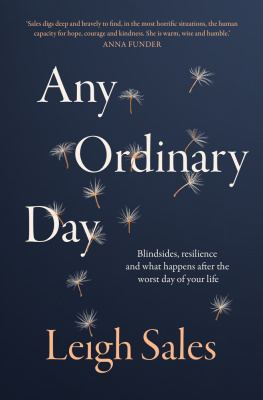
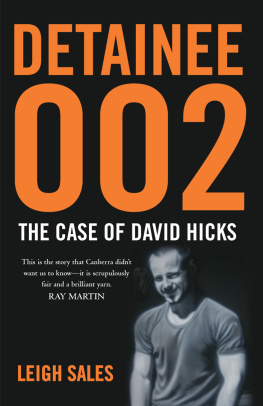

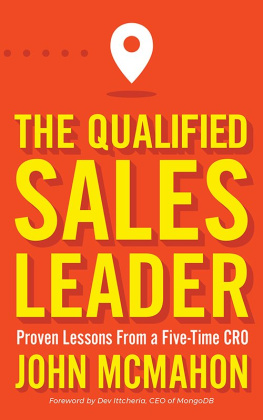
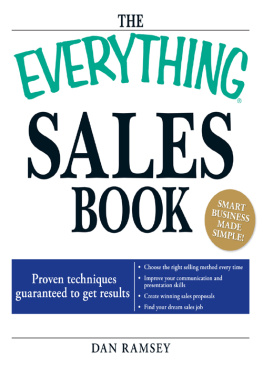
![Saint Francis de Sales [Sales - The Saint Francis de Sales Collection [15 Books]](/uploads/posts/book/266802/thumbs/saint-francis-de-sales-sales-the-saint-francis.jpg)
